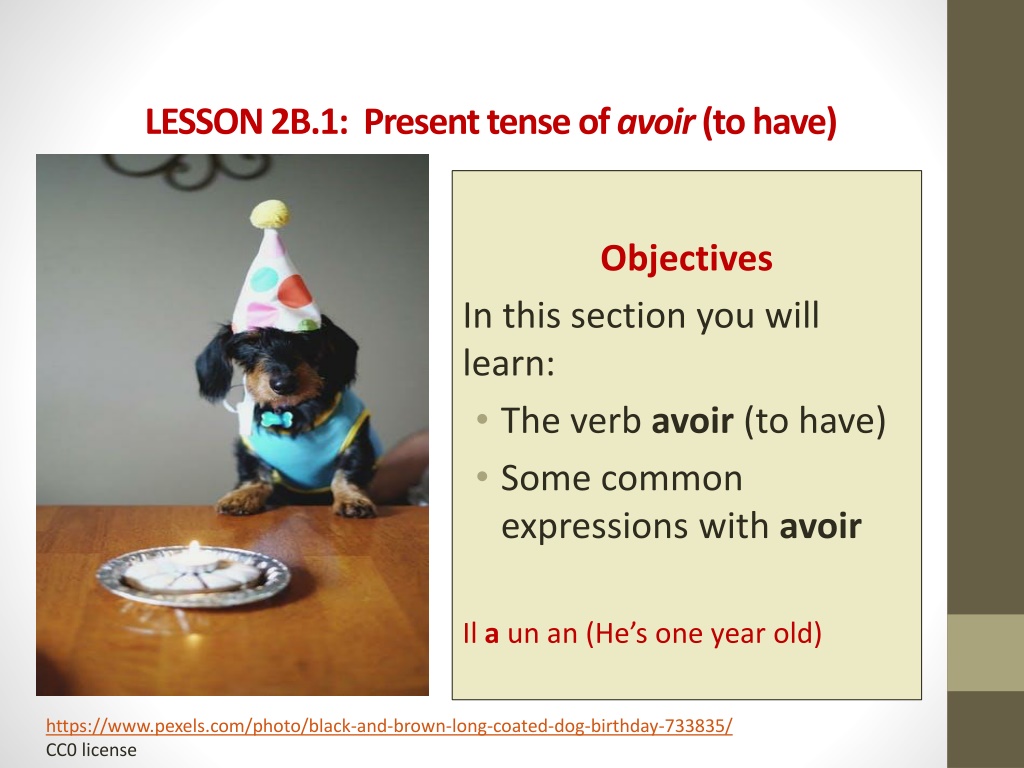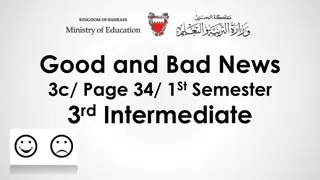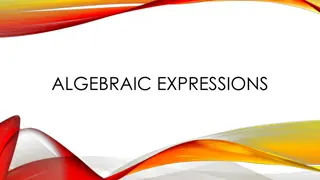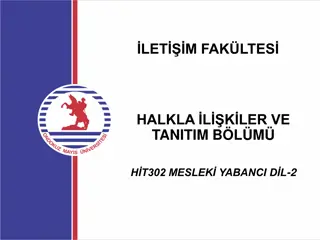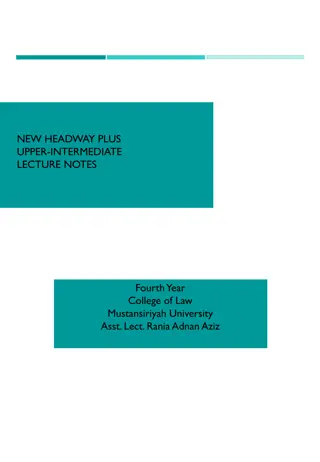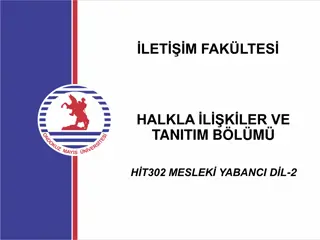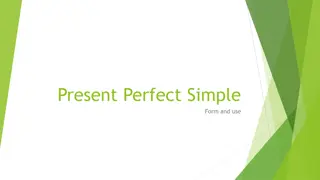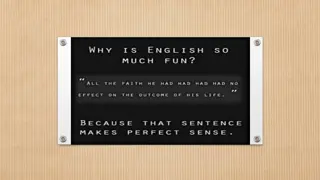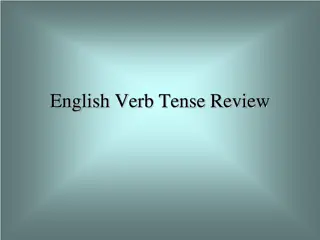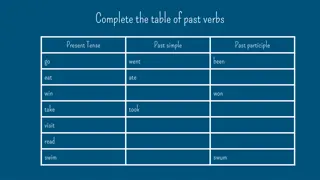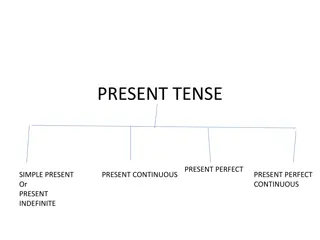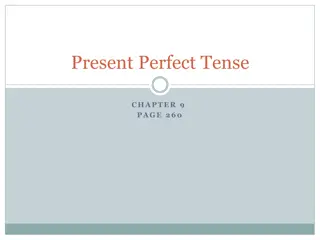Learning French: Present Tense of "Avoir" (To Have) and Common Expressions
This section covers the present tense of the French verb "avoir" (to have), including its conjugation and common expressions. You will learn how to form sentences using "avoir" and see examples of its usage in different contexts. Practice exercises are included to reinforce your understanding. Improve your French language skills with this lesson!
Download Presentation

Please find below an Image/Link to download the presentation.
The content on the website is provided AS IS for your information and personal use only. It may not be sold, licensed, or shared on other websites without obtaining consent from the author. Download presentation by click this link. If you encounter any issues during the download, it is possible that the publisher has removed the file from their server.
E N D
Presentation Transcript
LESSON 2B.1: Present tense of avoir(to have) Objectives In this section you will learn: The verb avoir (to have) Some common expressions with avoir Il a un an (He s one year old) https://www.pexels.com/photo/black-and-brown-long-coated-dog-birthday-733835/ CC0 license
OVERVIEW -This chapter is your introduction to another irregular verb, avoir. Do you remember the difference between regular and irrregular verbs? Can you mention another irregular verb? Regular verbs (parler, chanter,ect.) are those that keep their stem unchanged: Je parle/tu parles, je chante, nous chantons Irregular verbs ( tre) do not. Example: Je suis, tu es, etc. -Do not forget the use of apostrophes -This is the conjugation in the present tense of avoir: J ai Tu as Il/elle a Nous avons Vous avez Ils ont
Expressions with avoir -The verb avoir is important, not only because is a common verb but because it is also used as an auxiliary verb to form other past tenses: J ai achet un livre (I bought a book) Vous avez mang tard (You ate late) -Notice that French uses the verb To have (Avoir) instead of To be ( tre) in several expressions The expressions accompanied by de can also be used with an infinitive: J ai besoin d un dictionnaire (I need a dictionary) J ai besoin d acheter un dictionnaire (I need to buy a dictionary) -Notice again the apostrophe with Je+avoir: J'ai...
Expressions with avoir Here are some usual questions with the expressions. Notice that we are using the informal address here (tu). Remember also that questions can be asked with est-ce que or with inversion (verb first) Quel ge as-tu? how old are you? De quoi as-tubesoin? What do you need? De quoi as-tuenvie? What do you feel like doing or having? De quoi as-tu honte/peur? What are you ashamed/afraid of? est-ce que tu as sommeil? are you sleepy? est-ce que tu as froid/chaud? are you cold/hot?
PRACTICE Choose the expression that most logically completes these sentences: 1. Tu__________________des examens a) as chaud b) as peur 2. J ______________de t l phoner mon cousin (my cousin) a) ai envie b) ai someil 3. Laure________________le soir a) a tort b) a envie 4. Marie et Mireille sont jeunes. Elles__________________ a) ont cinq ans b)ont peur 3. as raison c) ai quinze ans c) a sommeil c) ont l air Answers: 1) b 2) a 3) c 4) a CC-BY Roger Celis
